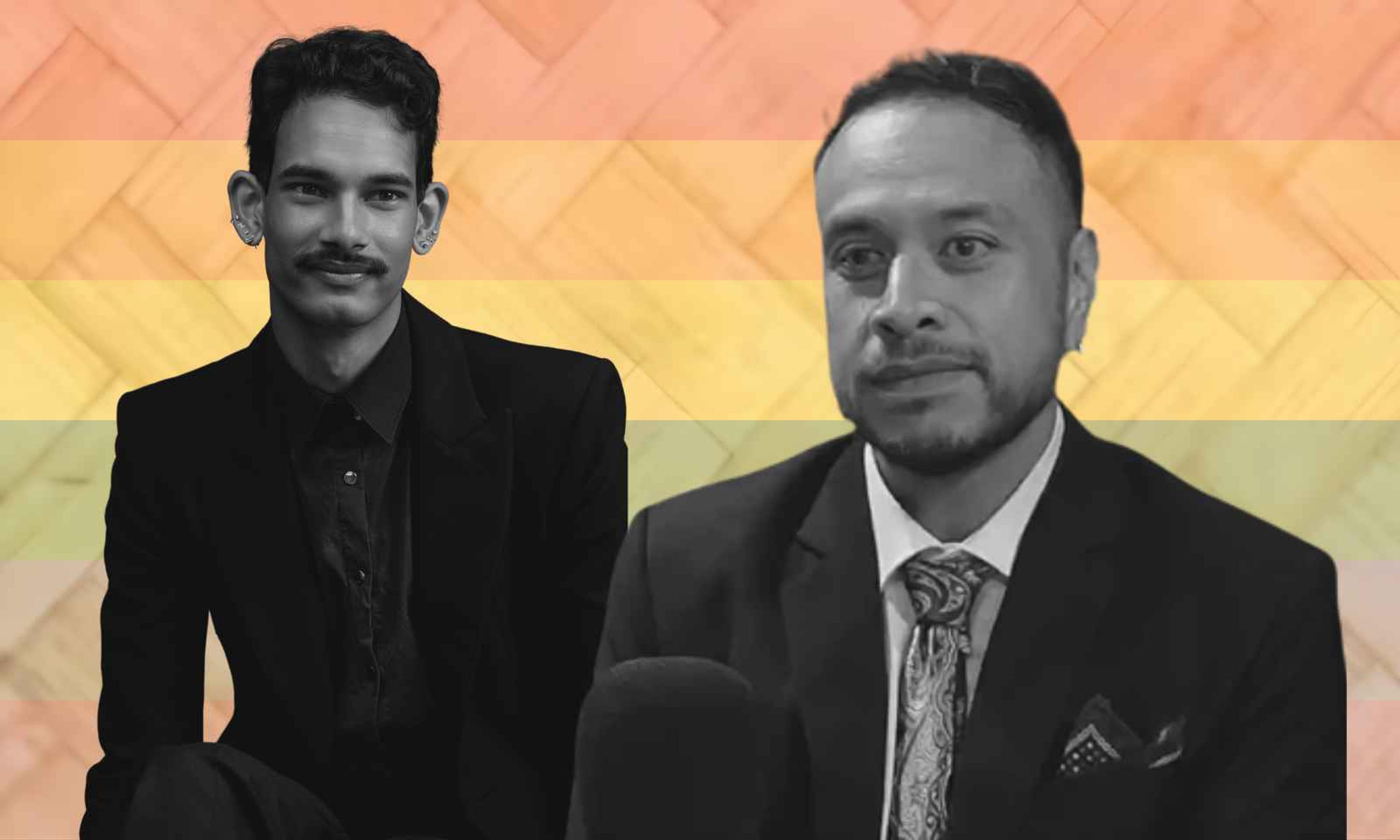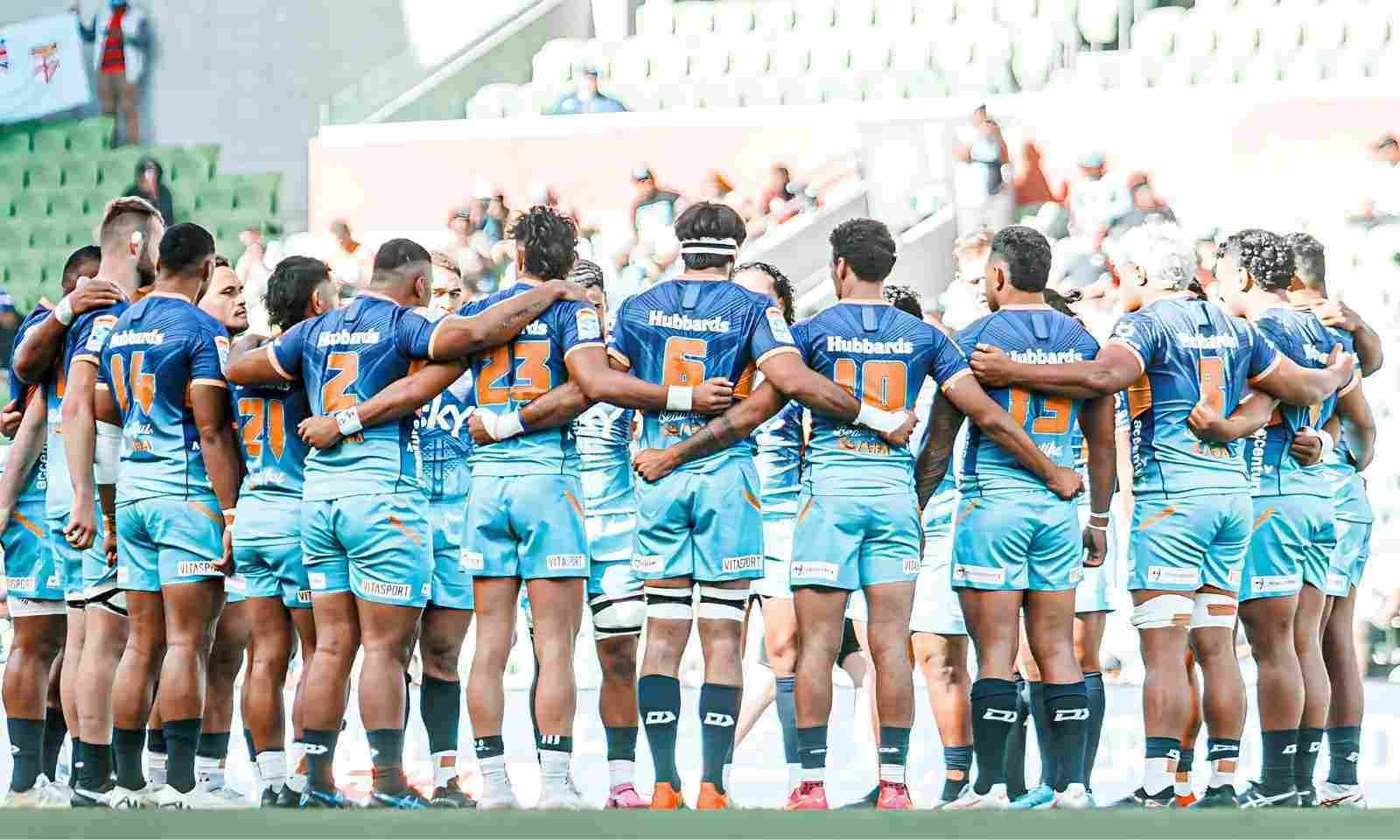

AUT lecturer Chris Puli'uvea is co-leading research on the long term effects of concussions.
Photo/Composite/AUT
Pacific and Māori athletes sought for concussion research
AUT researchers are investigating how brain injuries affect underrepresented groups and are seeking volunteers to help improve diagnosis and care.


Budget relief buys time for Ōtara-Papatoetoe, but pressures remain


Moana Pasifika end Lautoka curse to win 'Battle of the Pacific'

NZ's Pacific Rainbow+ people are avoiding healthcare after facing discrimination - study

Budget relief buys time for Ōtara-Papatoetoe, but pressures remain


Moana Pasifika end Lautoka curse to win 'Battle of the Pacific'
Auckland University of Technology (AUT) is calling for Pacific and Māori volunteers to participate in a ground-breaking study that focuses on traumatic brain injury (TBI), particularly the long-term effects of concussions.
Dr Chris Puli’uvea, a lecturer at AUT’s School of Science, is co-leading the research with the university’s Sports Performance Research Institute and the global healthcare company, Abbott.
Speaking to John Pulu on PMN Tonga, Puli’uvea says this is a very important study.
“A lot of the work that we’re doing here is around concussion, or like a little knock to the brain, and causing this other mild traumatic brain injury. That can have impacts on just your cognitive symptoms, mood, and other things as well.”
The study aims to improve the diagnosis and management of concussions that have been under-represented in existing research.
Puli’uvea says female athletes are often overlooked due to the complexity of hormonal changes, resulting in them being under-represented in studies. This is also the case for Māori and Pacific communities.
Watch Chris Puli'uvea's full interview below.
“We’re well represented in sports, but we’re probably overrepresented in concussions as well, so we want to try and reach out to them,” Puli’uvea says.
“Females in particular have two to four times higher rates of concussion in the same sports compared to men. But not only that, women have worse symptoms, and they experience them for much longer.”
Dr Stephen Kara, a concussion consultant with extensive experience working with the Blues Super Rugby team, Auckland NPC, and Counties Manukau rugby, earlier told PMN News that symptoms can take up to 48 hours to appear.
“Only 10 per cent of cases come from loss of consciousness. If you’re looking on the field, you might see a player that’s a bit slow to get off the ground, they get up and look off balance, get back onto the defensive line and look disoriented.
“Headaches, light-sensitive, noise-sensitive, they might feel nauseous or vomit after games. There might be mood changes, more irritable, excess fatigue, or my brain just feels like I’ve slowed down. Sleeping for a prolonged period of time or broken sleep, too.”

A study wants to research the impact of concussion in Pacific, Māori and women athletes. Photo/Moana Pasifika
Puli’uvea explains that concussion diagnosis is mainly subjective, relying on self-reported symptoms such as headache, dizziness, nausea, blurred vision, and delayed reactions.
“CT scans might not even pick up a traumatic brain injury. The example that I’ve been given by a colleague of mine - it’s like trying to look for a scratch on a car using a microscope.”
The research team is investigating biomarkers in the blood that could indicate a brain injury.
“When you get a head knock to your brain, proteins will then start leaving there and going into your bloodstream that’s not supposed to be there.”
By accurately measuring these proteins, the researchers aim to improve the reliability of concussion diagnoses and assess injury severity and recovery processes.
Participant recruitment
The research team is looking for male and female participants aged 16 and older. Those who have experienced a concussion within the past two weeks are especially encouraged to join, but healthy individuals are also needed to help establish baseline data.
Participants will receive a personalised report on their biomarker levels and petrol vouchers for their involvement.
Puli’uvea says it’s a rare and important opportunity. “We are world-leading in this area. Not a lot of work has been done in this space for Māori and Pacific people … this is an opportunity for tailored, precision medicine.”
In New Zealand, the Accident Compensation Corporation (ACC) requires a 21-day stand-down period for anyone who sustains a concussion, and New Zealand Rugby provides resources for players and coaches about recovery and returning to play.
If you are interested in the study, please email brain@aut.ac.nz or call 022 594 0771.